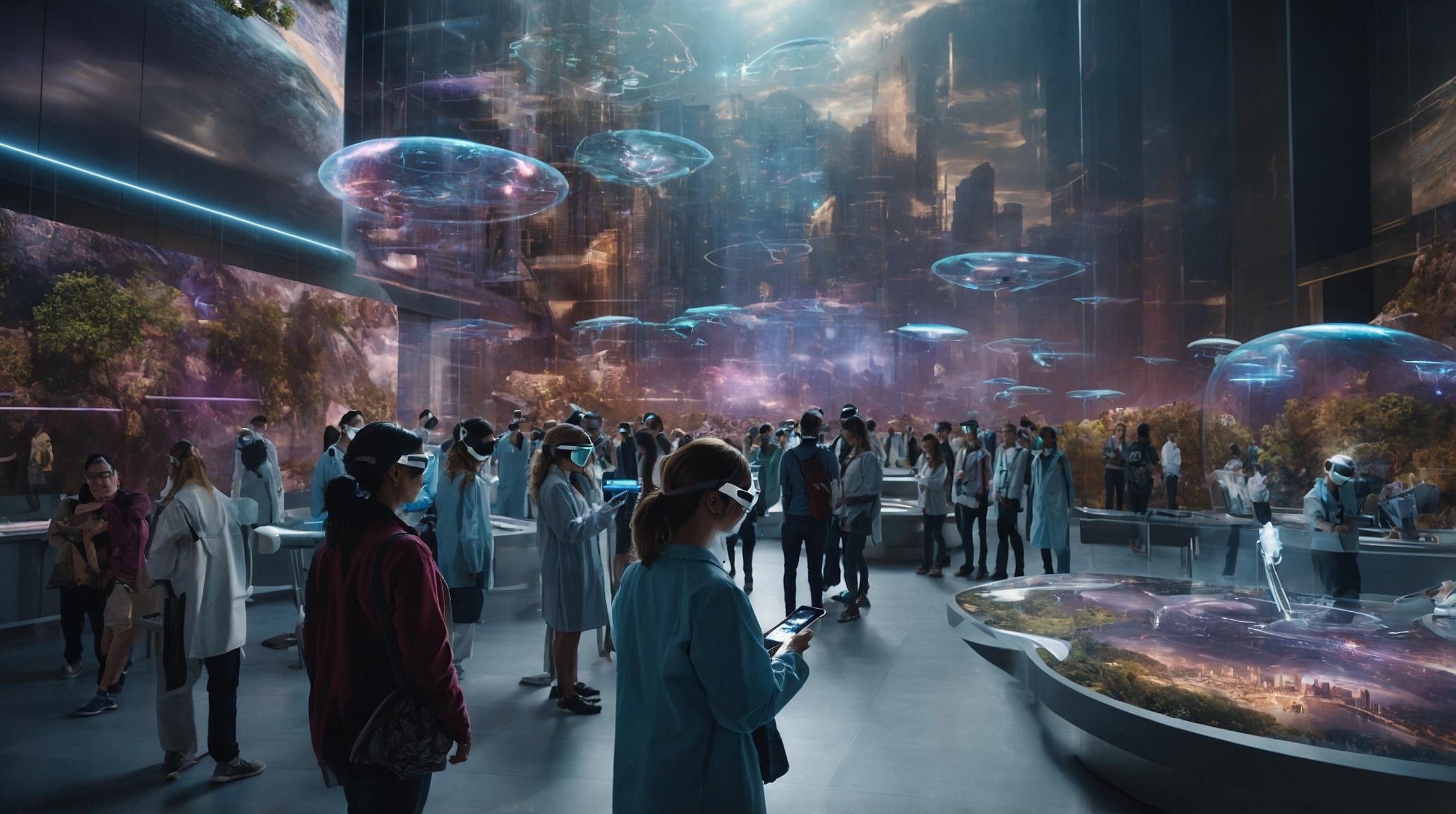Understanding Extended Reality (XR)
Extended Reality (XR) is a catch-all term that includes Virtual Reality (VR), Augmented Reality (AR), and Mixed Reality (MR). These technologies are increasingly becoming a part of our daily lives. For example, the Sphere in Las Vegas offers immersive XR displays, changing how we experience large-scale events. Real estate agents now use virtual home tours to show properties, and social media apps like Snapchat use AR for fun filters. Even Meta's Quest headsets are pushing consumer VR experiences forward. Notably, Facebook changing its name to Meta in 2021 underscores the potential of XR in creating a new digital world, known as the metaverse.
The Future of Work with XR
Currently, many people use multiple physical monitors at work. However, the future could see AR laptops and headsets providing digital screens, reducing the clutter on desks. Microsoft’s HoloLens and the anticipated Apple AR/VR headset show that major tech companies are investing heavily in this future.
Personal Experience with XR Devices
After attending the 2024 Augmented World Expo, I tested Ray-Ban Meta smart glasses for a month. These glasses have impressive features like taking photos and videos hands-free. However, some features overlap with voice assistants such as Google Assistant. This shows that while both technologies are useful, they serve different roles: smart glasses enhance sight, while voice assistants enhance hearing.
The Promise of Augmented Intelligence
This use of smart glasses relates to augmented intelligence, a branch of artificial intelligence (AI) aimed at enhancing human abilities rather than replacing them. The focus is on improving decision-making and solving problems by combining human and AI efforts.
Industry Applications of XR
Beyond personal use, XR is making waves in various industries. In healthcare, AR helps with surgical planning and guidance. In education, VR enables virtual field trips, offering students immersive learning experiences. In manufacturing, companies use AR for complex assembly processes and to provide remote expert help.
Challenges Facing XR Adoption
Despite its potential, XR adoption faces hurdles. Privacy is a significant concern, especially regarding data collected by AR devices. Other issues include technological limitations like battery life and processing power. Social acceptance of wearing XR devices in public is also a challenge.
The Impending Impact of XR
Despite these challenges, XR's ability to blend digital and physical worlds makes it a transformative technology. It has the potential to enhance productivity at work and transform entertainment. As XR becomes more prevalent, it will likely reshape various aspects of our lives. Staying informed about XR developments is essential, regardless of whether one is an early adopter or a cautious observer. XR is set to impact us all significantly in the near future.













